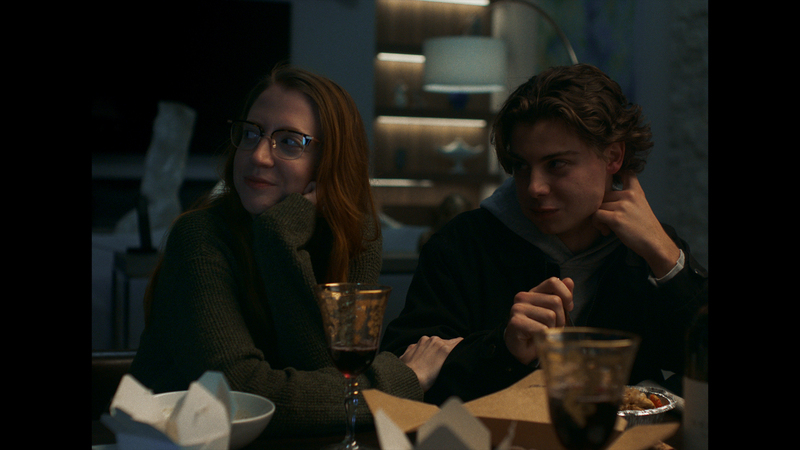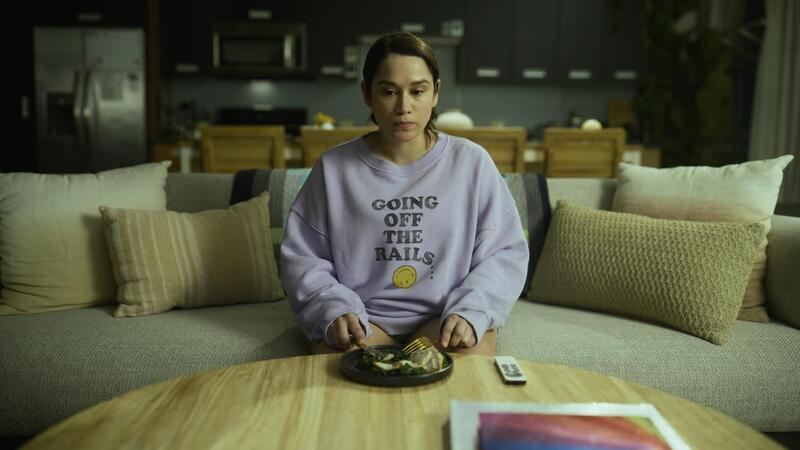
A Family That Can’t Agree on Love
MOVIE REVIEW
Where Did the Adults Go?
–
Genre: Drama, Family
Year Released: 2025
Runtime: 1h 29m
Director(s): Courtney Marsh
Writer(s): Courtney Marsh
Cast: Carey Cox, Amadeus Serafini, Carson MacCormac, Samantha Rose Baldwin, Joanna Nava Goldsmith, William Atherton, D’Ann Connelly
Where to Watch: releasing on YouTube on October 9, 2024, watch here: www.youtube.com
RAVING REVIEW: WHERE DID THE ADULTS GO? arrives as a narrative feature from Academy Award nominee Courtney Marsh, a filmmaker already known for blending intimate storytelling with social conscience. The film presents a seemingly simple scenario: three siblings, a family house, and the anniversary of their parents’ death. But it’s through this structure that Marsh builds something richer—a study of grief, inheritance, and identity, anchored by performances that balance vulnerability with tension.
The film’s central character, Cynthia, is played by Carey Cox in her first leading role. Cox brings an authenticity not only as an actress with Ehlers-Danlos Syndrome but also as someone portraying a disability activist whose advocacy has gone overlooked. The character’s determination to move forward collides with her brothers’ resistance when she proposes selling their parents’ summer home to fund a future with her wife. That choice establishes the heart of the story: one person’s vision of progress framed as another’s betrayal of memory. Cox portrays Cynthia as determined and sharp but never one-note; her overconfidence stems from conviction, not caricature, making her a deeply layered presence.
Opposite her, Amadeus Serafini plays Bryce, the eldest sibling and a real estate broker who wields practicality like a weapon. He refuses to consider Cynthia’s plan, not only to preserve the family home but to assert control, embodying that sibling archetype who believes compromise equals defeat. Serafini injects Bryce with arrogance, but also lets us glimpse the wounds beneath the bluster. His performance resonates because he doesn’t just play the villain of the piece; he’s a brother clinging to stability in the only way he knows.
Carson MacCormac’s Miles, the youngest, drifts between distraction and insight. Fresh from a breakup, he claims not to care much about the family property, yet his indecision reveals the burden of being a deciding vote in conflicts you’d rather escape. MacCormac captures that middle ground between avoidance and adult responsibility. His moments of humor and hesitation bring oxygen into the film’s heavier exchanges, while his confusion feels recognizably human.
Marsh directs with restraint, choosing intimacy over spectacle. This stylistic choice fits the material: the house becomes a crucible where every pause, shrug, or raised voice carries weight. Marsh crafts by alternating between confrontations and moments of quiet release—like the siblings gathered in a hot tub, where levity temporarily dissolves old resentments. The result is a balance that feels honest: grief and humor intertwining, as they do in real families.
The film thrives on ambiguity. Cynthia’s proposal makes sense; Bryce’s opposition also feels justified in its own way. Miles embodies the exhausted middle ground. Marsh doesn’t force the audience to pick a side, instead leaving space for debate. That openness extends to her treatment of disability representation: Cynthia’s Ehlers-Danlos Syndrome is present but never sensationalized. It informs her perspective without defining it, reinforcing the film’s core message that identity should be portrayed authentically, not as shorthand or metaphor.
The supporting cast rounds out the ensemble effectively. Samantha Rose Baldwin (Gabby) and Joanna Nava Goldsmith (Makeila) add depth to the world. At the same time, William Atherton and D’Ann Connelly appear as the parents in flashbacks that remind us why the house matters. Behind the camera, Marsh is joined by an experienced team: Maximilian Schmige’s cinematography emphasizes intimacy over grandeur, while Sushila Love’s editing lets dialogue-heavy scenes breathe without dragging. Composer Steve London’s score is subtle, guiding emotion without smothering it.
As Marsh explains in her director’s statement, the film draws from her own fears about losing her parents and the chaos that might follow between siblings who are so different in values, politics, and life paths. That personal investment shows. The story feels less like a fabricated drama and more like a remembered argument, replayed until it turns into art.
WHERE DID THE ADULTS GO? succeeds as both a family drama and a cultural statement. It proves that representation doesn’t need to be proclaimed—it simply needs to be present, respected, and embedded in character. For Cox, the film is a major career milestone: she carries the story with presence and depth, demonstrating what it means to lead a story that reflects lived truth. It’s a work that resonates, challenges, and invites conversation—the kind of film you leave still arguing about, which might be the highest compliment for any drama.
Please visit https://linktr.ee/overlyhonestr for more reviews.
You can follow me on Letterboxd, Instagram, Twitter, and YouTube. My social media accounts can also be found on most platforms by searching for 'Overly Honest Reviews'.
I’m always happy to hear from my readers; please don't hesitate to say hello or send me any questions about movies.
[photo courtesy of BLACK PHOEBE FILMS, CYNASTY FILMS]
DISCLAIMER:
At Overly Honest Movie Reviews, we value honesty and transparency. Occasionally, we receive complimentary items for review, including DVDs, Blu-rays, CDs, Vinyl Records, Books, and more. We assure you that these arrangements do not influence our reviews, as we are committed to providing unbiased and sincere evaluations. We aim to help you make informed entertainment choices regardless of our relationship with distributors or producers.
Amazon Affiliate Links:
Additionally, this site contains Amazon affiliate links. If you purchase through these links, we may receive a commission. This affiliate arrangement does not affect our commitment to honest reviews and helps support our site. We appreciate your trust and support in navigating these links.



Average Rating